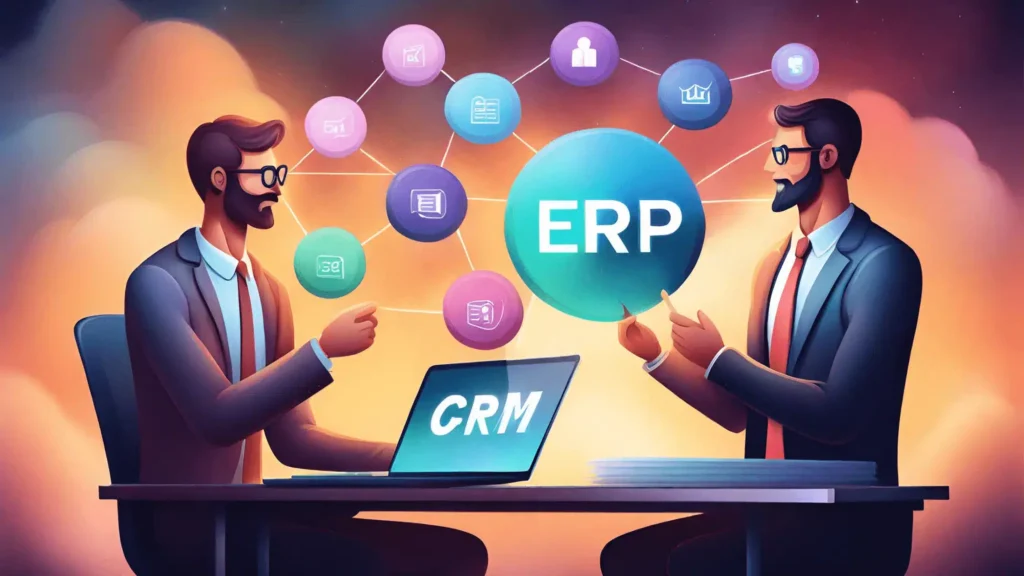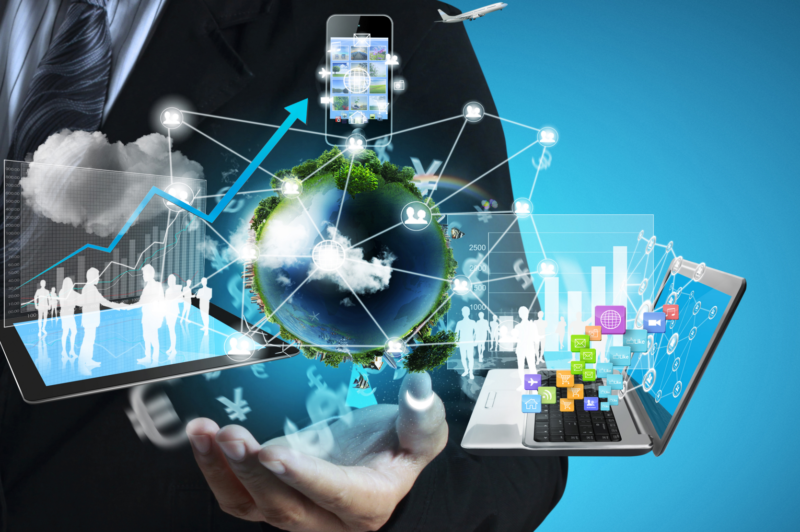How IT Certifications Improve Job Prospects in 2025 Boost Your Career with the Best IT […]
ERP vs CRM in 2025: Key Differences

ERP vs CRM in 2025: Key Differences Every Business Should Know
In 2025, businesses are more dependent than ever on technology to operate smoothly and grow sustainably. Two of the most powerful tools driving this change are ERP (Enterprise Resource Planning) and CRM (Customer Relationship Management).
At first glance, ERP and CRM might appear similar because both handle business data and processes. However, the truth is that they focus on very different aspects of your company. One looks inward at your operations, while the other looks outward at your customers.
Understanding the ERP vs CRM difference is essential before making any investment. Choosing the right software can transform the way you operate, reduce costs, improve sales, and ultimately drive profitability.
What is ERP?
ERP (Enterprise Resource Planning) is a type of business management software that centralizes and integrates a company’s internal processes. Instead of relying on multiple disconnected tools for accounting, payroll, inventory, and supply chain, ERP combines them into one system.
This integration eliminates duplication, reduces manual work, and ensures that every department is working with the same real-time data.
Example: Imagine a retail company. When a customer makes an order, ERP automatically reduces stock levels, updates the procurement team if stock runs low, generates an invoice, and records the sale in the finance module. Without ERP, these tasks would require multiple systems and manual updates, which can be slow and error-prone.
Key ERP Modules:
-
Accounting & Finance: Automates invoices, payments, taxes, and reporting.
-
HR & Payroll: Manages employee data, attendance, and salaries.
-
Inventory Management: Tracks stock in real time and prevents shortages.
-
Supply Chain: Optimizes procurement, vendor management, and logistics.
ERP essentially acts as the nervous system of a business, keeping operations running smoothly and efficiently.
What is CRM?
CRM (Customer Relationship Management) is software designed to manage all customer-facing activities. It helps businesses build, nurture, and strengthen relationships with both potential and existing customers.
In a customer-driven economy, sales and service teams need complete visibility into leads, opportunities, and customer history. CRM provides this visibility in one place.
Example: A real estate company uses CRM to capture new leads from its website, automatically assigns them to sales agents, sends follow-up emails, and then tracks the progress of each deal. After a sale, the CRM also stores details of interactions so that customer support can provide better service later.
Key CRM Modules:
-
Lead Management: Collect and track potential customers.
-
Sales Pipeline Tracking: Monitor progress of deals and forecasts.
-
Marketing Automation: Run campaigns, send personalized emails, and measure engagement.
-
Customer Support: Manage support tickets and resolve complaints efficiently.
CRM is the frontline tool that helps businesses grow revenue and improve customer satisfaction.
ERP vs CRM Difference: Core Purpose
Even though both ERP and CRM support business growth, their core objectives are not the same.
-
ERP Software: Focuses on internal operations. It ensures that departments like finance, HR, procurement, and logistics are working efficiently and cost-effectively.
-
CRM Software: Focuses on external growth. It ensures that sales, marketing, and service teams can engage with customers effectively and increase revenue.
Think of it this way:
-
ERP = Efficiency Engine → keeps operations lean, cost-effective, and optimized.
-
CRM = Growth Engine → drives customer acquisition, loyalty, and sales expansion.
This is the essential ERP vs CRM difference every decision-maker should understand before investing in software.
Who Benefits Most from ERP and CRM?
Not every business needs both ERP and CRM at the same time. The right choice depends on your priorities.
-
ERP Benefits:
ERP is best suited for medium and large organizations where complexity is high. Manufacturers, wholesalers, distributors, and large service companies all benefit from ERP because it automates repetitive processes, reduces human errors, and keeps costs under control Example: A manufacturing business with multiple warehouses can use ERP to track raw materials, manage supplier relationships, optimize production schedules, and generate accurate financial reports. Without ERP, this would require multiple manual systems, leading to errors and delays.
-
CRM Benefits:
CRM is ideal for customer-centric businesses. Retailers, e-commerce companies, real estate firms, and service providers all rely heavily on CRM to capture leads, track sales pipelines, and improve customer loyalty. Example: An e-commerce company can use CRM to track user behavior on its website, send targeted promotions, and provide personalized after-sales service. This increases both conversion rates and repeat purchases.
For small businesses in 2025, CRM is often the first step toward digital transformation because it is cost-effective and delivers quick results in terms of sales growth. Larger enterprises usually adopt ERP first to streamline operations.
ERP + CRM Integration: The Best of Both Worlds
In 2025, many companies are realizing they don’t need to choose between ERP and CRM. Instead, they are integrating both systems to get the best of both worlds.
When ERP and CRM are connected:
-
Sales teams can instantly check inventory and pricing from ERP while closing deals in CRM.
-
Finance teams using ERP can link invoices directly to customer histories in CRM.
-
Management teams gain full visibility into costs, operations, sales performance, and customer satisfaction.
This 360° view of business and customers helps organizations make smarter decisions, respond faster to market changes, and achieve sustainable growth.
Integration is becoming a core part of digital transformation strategies in 2025 because it bridges the gap between back-office efficiency and front-office growth.
Final Thoughts
The debate of ERP vs CRM in 2025 isn’t about which one is superior. Instead, it’s about which one aligns better with your current business goals.
-
If you’re struggling with inefficiencies, manual processes, or operational costs, an ERP solution will deliver maximum impact.
-
If your main challenge is attracting more customers, improving sales, and delivering excellent service, then a CRM system should be your first investment.
-
For long-term scalability, integrating ERP CRM software is the smartest move, because it provides a complete ecosystem that balances efficiency with growth.
At Spark ITX, we specialize in helping businesses implement customized ERP and CRM solutions that align with their unique goals. Whether you are a startup looking to grow, a small business aiming for digital transformation, or a large enterprise focused on efficiency, we can help you choose and implement the right system.
Related Posts
Top 10 Programming Languages to Learn in 2025
- SparkITX
- April 11, 2025
- 5 min read
- 0
Top 10 Programming Languages to Learn in 2025 Future-Proof Your Coding Career with These In-Demand […]
Why Tamil Nadu Retailers Are Going Online
- SparkITX
- August 21, 2025
- 6 min read
- 0
Why Tamil Nadu Retailers Are Going Online Discover why Tamil Nadu retailers are rapidly going […]
Embracing Technological Advancements: Spark ITX’s Commitment to Innovation
- SparkITX
- January 22, 2025
- 6 min read
- 0
Embracing Technological Advancements: Spark ITX’s Commitment to Innovation In today’s fast-evolving digital landscape, businesses must […]




